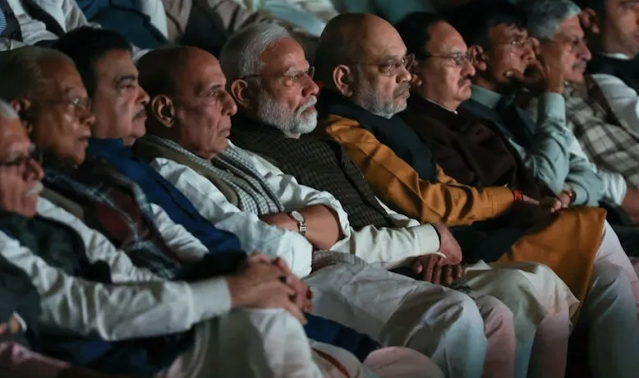The Sabarmati Report'—A Cinematic Revelation That Stirs the Nation
Dheeraj Sarna’s The Sabarmati Report is a bold foray into political drama, shedding light on one of India’s most tragic and controversial chapters. With Vikrant Massey, Raashii Khanna, and Riddhi Dogra delivering compelling performances, the film unpacks the harrowing events surrounding the Sabarmati Express tragedy, which claimed the lives of 59 innocent pilgrims. Released on November 15, 2024, the movie has struck a chord with audiences nationwide, sparking both emotional and intellectual engagement.
The decision to premiere the film at the Balyogi Auditorium in Parliament, attended by key political figures including Prime Minister Narendra Modi and Union Ministers, underscores its significance as more than just a cinematic work—it is a national conversation starter. Prime Minister Modi’s endorsement of the film, encapsulated in his tweet about the importance of truth triumphing over “fake narratives,” lends political weight to the narrative and underscores the broader socio-political resonance of the tragedy.
By dramatizing the incident, The Sabarmati Report navigates a complex web of historical and political sensitivities. It dares to probe the truth, offering a perspective that seeks to challenge misinformation while evoking empathy for the lives lost and affected. The film’s ability to connect with viewers across diverse demographics highlights its narrative strength and relevance.
However, the movie’s very premise also invites scrutiny. Political dramas rooted in real-life tragedies often walk a fine line between documentation and dramatization. While Sarna’s direction and Massey’s nuanced portrayal ensure authenticity, the film may still attract criticism for potentially polarizing interpretations of the events it recounts. This duality is inevitable in art that aims to mirror the socio-political realities of its time.
The Sabarmati Report is not merely a film—it is a cultural and political artifact. By engaging directly with one of India’s most contentious tragedies, it encourages viewers to confront uncomfortable truths. Whether or not one agrees with the perspectives it presents, the film’s courage in addressing a sensitive chapter in India’s history is commendable.
As the movie continues to ignite discussions nationwide, it serves as a reminder of the power of cinema to inform, challenge, and unite. In an era where narratives are often contested, The Sabarmati Report stands out as a cinematic call for reflection, understanding, and perhaps, reconciliation.




Comments
Post a Comment